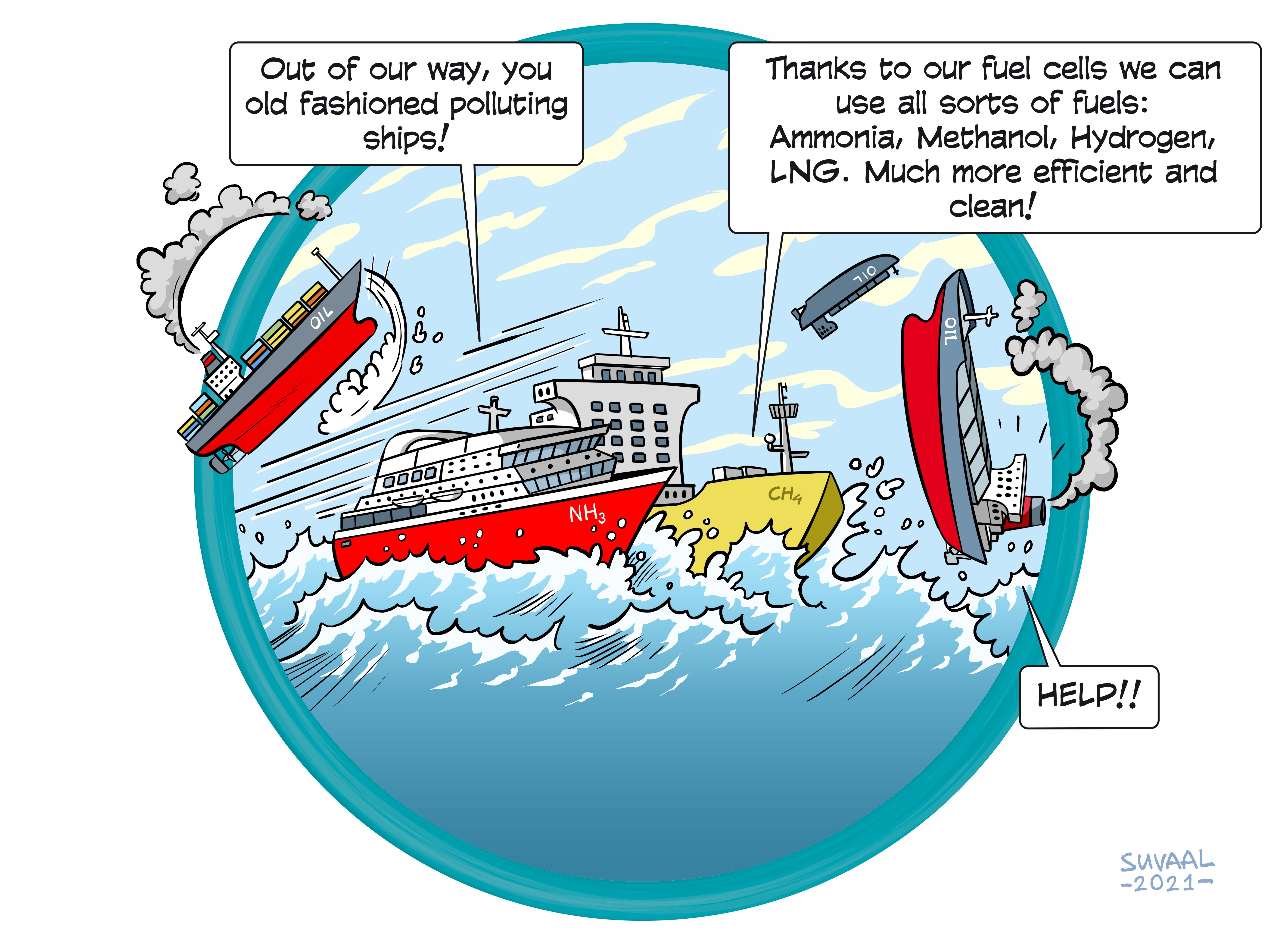Use of Fuel Cells in the Maritime Sector
Research Themes: Energy, Water & Maritime


A TRL is a measure to indicate the matureness of a developing technology. When an innovative idea is discovered it is often not directly suitable for application. Usually such novel idea is subjected to further experimentation, testing and prototyping before it can be implemented. The image below shows how to read TRL’s to categorise the innovative ideas.
Summary of the project
Electrifying huge ships for propulsion can be done by converging chemical energy from a fuel into electricity on board. This conversion takes place in a fuel cell, which is a well-known process. The researcher focusses especially on the whole system surrounding the fuel cell tailoring it to the requirements of the maritime sector. That the cell is able to produce the power that is needed to move or maneuver a ship and that the cell is flexible enough to deal with variations in the power level. In this sector fuel cells are expected to run continuously, 24/7 for weeks on end. This raises questions on the wear or fatigue of such a cell, how can this be prevented, managed and repaired if needed. Typically, fuel conversion to hydrogen and electrochemical oxidation of hydrogen take place simultaneously in the cell. He would want to know how these process take place in in the cell, interact and affect the performance of fuel cells. In addition, heat is produced in the reaction while there are several heat requirements that may be coupled, such that you use the generates heath somewhere else on board to increase efficiency. The biggest challenge is to make these fuel cells smaller, cheaper, easier to operate and control and more reliable and efficient.
What's next?
The next step is to develop and validate models of individual components and integrate them to develop and test new system integration configurations and improved control algorithms.
Contribution to the Energy transition?
Fuel cells are the next step for sectors in which batteries are insufficient or the direct use of renewable energy is unavailable. Shipping, especially the powering of large ships is such a sector. This research contributes to the transition that it makes fuel cells more equipped for the heavy duty that is needed to power a ship. And at the same time they become more flexible to operate increasing their efficiency.
dr. ir. Lindert van Biert
dr. ir. Henk Polinder
ir. Klaas Visser
ir. Berend van Veldhuizen
Faculties involved
- 3ME
